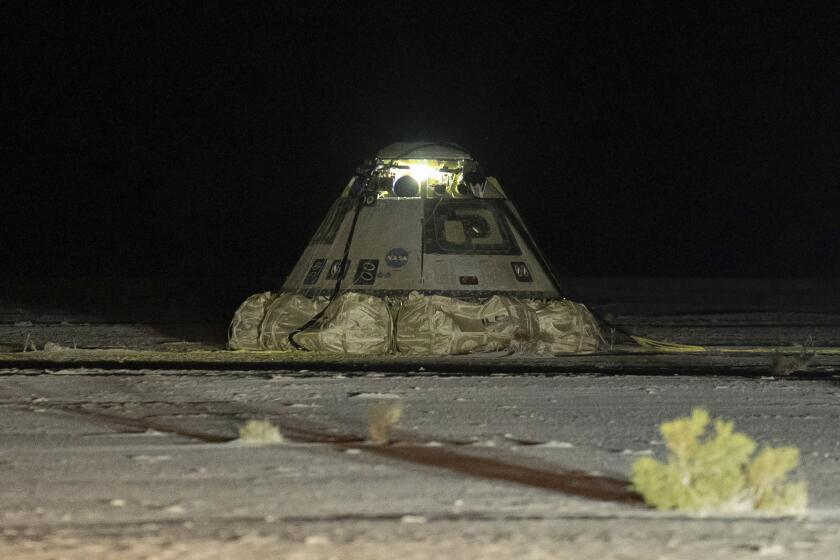Keeping Parks Professional
The prospect that campfire talks at Mesa Verde National Park or nature walks at Shenandoah National Park will be led not by rangers in Smokey Bear hats but by volunteers and that other jobs will be done by employees splattered with the logos of corporations has set park visitors to howling like frenzied coyotes.
Interior Department officials insist that Secretary Gale A. Norton isn’t talking about the nation’s beloved rangers when she says she’s looking at 70% of the Park Service’s 17,000 full-time jobs to decide which ones might be done just as well and cheaper by private employees. And department leaders insist that the agency won’t put anywhere near the roughly 12,000 jobs under review out for bid. But the experiences of other public agencies hold lessons for Park Service officials as they head down this trail.
Norton’s review is part of the Bush administration’s effort to hand off to the business world as many as 850,000 federal jobs. It comes as the president drives relentlessly to dismantle long-standing environmental safeguards and open more land, including national parks and monuments, to loggers and oil drillers.
To some, privatization is a religion -- always better because it shrinks the size of government. Others agree that private- sector workers can, when carefully monitored, provide better public service for fewer tax dollars than civil servants.
In recent decades, dozens of cities and states and the federal government have hired private firms to collect trash, manage museums and run data systems. They’ve learned a few things in the process. First, competition is essential. Replacing a public monopoly with a private one doesn’t benefit taxpayers. If there aren’t several competent bidders for a job, the presumed economic advantage to replacing government workers with private ones vanishes.
Some jobs -- such as those held by agency scientists, with their esoteric and invaluable knowledge -- need to remain free from corporate influences. But quality matters even in less lofty positions. The private security guards that airports hired to screen bags and monitor passengers were a bargain compared with the federal employees now on duty. But they didn’t do a good job, as Americans learned on 9/11. Maybe some of the Park Service’s custodians, maintenance workers and clerical staff don’t need federal paychecks. But rangers do count on the professionalism of ancillary workers to support them in their increasingly difficult jobs.
Besides teaching s’more-smeared children the hunting habits of horned owls, rangers must also handcuff criminals, direct gridlocked traffic and keep boulders off trails. If the government fobs off too many of these duties or other jobs on desultory workers -- there only because their boss was a low-ball bidder -- the parks will suffer and the public will lose faith in this most familiar and trusted of federal institutions.
More to Read
Sign up for Essential California
The most important California stories and recommendations in your inbox every morning.
You may occasionally receive promotional content from the Los Angeles Times.










